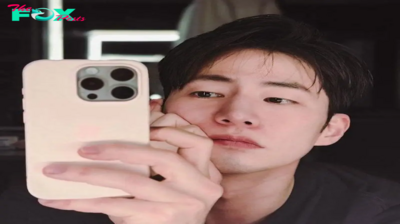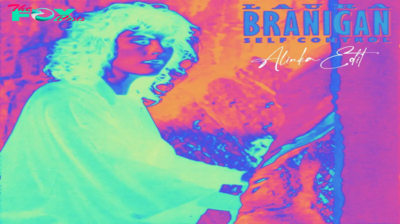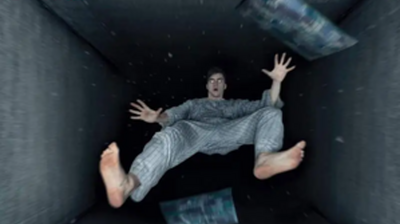Entertainment
AMERICAN THEATRE | The Unpredictable Experiment: 25 Years of Sloan Science Performs
Dana Segal, Richard B. Watson, Juliana Davis, Jacobi Howard, and Melanie Souza in Deborah Zoe Laufer’s “Knowledgeable Consent” at American Stage in 2017. (Picture by Kara Goldberg)
“You wish to take my place on her wings—that’s why you’re miffed. Need to be the primary!”
Perhaps Wilbur Wright didn’t really lob this accusation at his brother Orville on the seaside at Kitty Hawk, N.C., in 1900, however he did so onstage at New York Metropolis’s Ensemble Studio Theatre in November 1997. This was the debut of Flight, a play by Arthur Giron which, just like the Wright Brothers’ fateful experiment, additionally marked the start of one thing huge. Flight was the modest kickoff of an extended line of science-themed performs supported by the Alfred P. Sloan Basis, in a singular funding program that continues to this present day and exhibits no indicators of stopping.
Its seeds might be traced to the 1995 hiring of Doron Weber, who joined the Sloan Basis to go its program for Public Understanding of Science and Expertise. The humanities hadn’t beforehand factored into the group’s grantmaking; as Weber informed me of the inspiration’s late namesake, “It’s not that Alfred P. Sloan didn’t worth the humanities, however he mentioned they had been too unpredictable.” Weber, then again, had an arts background, and believed that various media—not simply theatre however books, radio, TV, and movie—may very well be a important approach to weave science and expertise into the cultural dialog.
Within the quarter century that adopted, the Sloan Basis has supported the event and dissemination of a whole bunch of performs on scientific and technological themes by way of commissions, rewrite grants, and manufacturing help.
Fast references to this system normally cite a pair of early, celebrated successes, each of which opened on Broadway in 2000: David Auburn’s Tony- and Pulitzer-winning Proof, whose Manhattan Theatre Membership manufacturing was supported by Sloan; and Michael Frayn’s Tony-winning Copenhagen, which Sloan helped to introduce to U.S. audiences after its success in London by sponsoring a symposium in regards to the piece’s creation, in addition to giving PBS a $1 million grant to movie the play.
What actually units this system aside is the sheer variety of artists and viewers members its grants have touched indirectly. Thus far, the theatre program has funded greater than 450 of the three,000-plus proposals it has obtained for brand spanking new performs, and has supported greater than 100 productions, not simply in New York (the center of its operations) however at some 50 theatres world wide.
Many have been produced on the basis’s closest accomplice theatres: Ensemble Studio Theatre (EST), Manhattan Theatre Membership (MTC), and audio producer LA Theatre Works (LATW). (London’s Nationwide Theatre is one other present accomplice; earlier companions embody Playwrights Horizons and the Magic Theatre, and seed grants administered by way of EST have recruited quite a few different theatres throughout the U.S. to provide Sloan commissions.)
When it comes to quantity alone, it’s truthful to say the Sloan Basis’s quest to whip up public curiosity in science has made a considerable contribution to modern dramatic literature. However can these performs be thought-about collectively as a physique of labor—a canon, even? Over the previous 12 months or so, in an try and reply this query, I’ve learn, watched, and listened to 80 of those performs. I didn’t got down to consider particular person performs, however I did go in in search of patterns at this busy intersection of science and theatre. (I’ll as effectively confess that that is my thought of enjoyable. Not by the way, the 2 locations I’ve labored the longest are this journal and the Massachusetts Institute of Expertise.)
Fortunately, the humanities are simply as unpredictable as Mr. Sloan believed. Nonetheless, I got here up for air satisfied that profitable “Sloan performs” do three issues:
1. They remind us that science and engineering aren’t summary ideas, however fields of labor carried out by human beings whose highly effective intellects come packaged with complicated motives and imperfections.
2. They prime us to study extra in regards to the scientific and technical points that form our world and that have an effect on the lives of individuals each like and in contrast to ourselves.
3. They shock us with tales we not often see onstage, drawn from a bottomless effectively of content material that needn’t be intimidating however usually is.
Right here Be Metaphors (Additionally, Analysis)
What do relativity, continuity, infinity, and completeness have in widespread—moreover all being titles of Sloan performs? Every phrase has technical definitions in math and science, whereas inviting any variety of figurative associations.
I’d questioned which elements of Science and engineering have exerted the strongest pull on playwrights over the previous few a long time. It didn’t take lengthy to note this specific attraction. These disciplines are teeming with irresistible nouns: codes, hearts, constellations, hives, collisions. If black holes didn’t exist, a playwright most likely would have needed to invent them. Some metaphors are higher resisted, however, when deftly dealt with, they will present the framework for a whole play.

Take Proof and Copenhagen, which have obtained quite a few productions within the greater than 20 years for the reason that Sloan Basis put its weight behind them. Each showcase the attraction of a juicy scientific metaphor. Proof is a play about mathematical genius and psychological sickness that will get dramatic mileage from the various meanings of its title. And Copenhagen fleshes out physicist Werner Heisenberg as a fancy character, whereas borrowing Heisenberg’s uncertainty precept from its authentic quantum context to touch upon the slippery nature of reminiscence and motives.
Metaphors have to be earned, as Weber informed me. When he convenes panels of scientists and theatremakers to judge proposals for Sloan help, they anticipate candidates to display that the technical elements of any such conceit are intrinsic to the science within the story.
This may be completed superbly. Take Jennifer Maisel’s Out of Orbit, whose central character, Sara, is a member of the Jet Propulsion Laboratory group sending rovers to Mars in 2003. She is a scientist on the pinnacle of her profession, in “a job that didn’t even exist after I was making the what-I-want-to-do-when-I-grow-up lists,” however at dwelling she struggles to attach together with her teenage daughter. Sara’s protecting concern for a robotic touchdown on a planet tens of millions of miles away, the way in which she speaks of it like an extension of her personal physique, the sudden element that she wears two watches to trace Mars vs. Earth time—all put parenting in a recent gentle. The parallels work in each instructions, serving to me relate to a personality whose work is completely totally different from mine.
It’s one factor to reassure audiences that there’s no prerequisite coursework to attend a science play. Inviting playwrights to create them appears extra sophisticated, nonetheless, given how important accuracy is to science—and that we dwell in an period when rampant misinformation about science is a risk to public and planetary well being.
But the vast majority of Sloan theatre grantees lack a proper background in science. There are some exceptions: Bob Clyman, a medical psychologist, could effectively have utilized insights from his area in dramatizing Secret Order’s office intrigue (although the office in query entails most cancers analysis). Carl Djerassi, whose discoveries in chemistry helped start the contraception capsule, wrote An Immaculate False impression in regards to the ramifications of reproductive expertise. Longtime science journalist Dava Sobel turned her ebook about Nicolaus Copernicus into the play And the Solar Stood Nonetheless. Do writers with such credentials have a leg up within the utility course of?
“The important thing factor, truthfully, is how good a playwright you’re,” Weber mentioned. “A number of what we do is predicated on discovering gifted folks and supporting them. If the working playwright sees this as compelling, dramatic materials to deal with—as professional as another dramatic subject material—that, to me, is success.”
Candidates are inspired to pitch concepts they’re not fairly certain learn how to pull off. This system pairs grantees with advisors in associated fields to assist them get the main points proper. For instance, when Carla Ching determined to jot down Quick Firm, a few younger lady who learns recreation idea to one-up her con-artist household, she consulted with Columbia College economist Qingmin Liu. Liu’s clarification of recreation idea rules concerning the credibility of risk and dedication ended up shaping the second half of Ching’s plot.
Is This the Actual Life? Is It Simply Fantasy?
If pressed to call the most important Sloan theatrical sub-genre, I’d cite historic biography. The Wright Brothers, Heisenberg, and Copernicus aren’t alone in getting their very own Sloan-supported performs—so too have Turing, Franklin, Newton, Feynman, Curie, Tesla, Bell, Erdös, and Oppenheimer, amongst others you may acknowledge on a last-name foundation.

Every chronicle comes filtered by way of its author’s distinctive sensibility. Lloyd Suh’s very humorous Franklinland covers a number of a long time; it begins with a key and a kite, and namechecks the founding father’s many innovations, from bifocals to odometers. However it will get most of its zingy vitality from the strained relationship between egomaniacal Ben and his son William, who turned Royal Governor of New Jersey whereas his father was beating the drum for American independence. The comedy’s trendy banter made me surprise how a lot of it may very well be true. Was Ben actually planning to create a commune known as Franklinland, dedicated to his model of brilliance, in Nova Scotia? The historic file confirms he owned land there, however you’d should dig for extra particulars on the backside of a post-show web rabbit gap.
Every of those bio-plays raises the identical query: How a lot are we really studying about Science historical past, and the way a lot is inventive license? The script for Giron’s Flight requires that wherever it’s carried out, this system should embody a disclaimer: “This play, impressed by the Wright Household, isn’t a documentary, however an exploration of their lives in theatrical phrases.”
Lucas Hnath’s Isaac’s Eye takes this disclaimer a step additional. It opens in a younger Isaac Newton’s workshop with a direct deal with from actor to viewers, which fits partially:
Isaac Newton knew or thought he knew,
he thought he knew there was one thing known as ether.
He thought there was ether all over the place.
Ether within the air, ether in between the air.
Ether all over the place there was a there.
And since he thought there was ether all over the place,
it helped him think about how issues moved.
He might think about that issues moved on ether,
in his head, that’s how issues moved.
We all know now what Newton didn’t know then:
there’s no such factor as ether.
However by believing that ether was actual,
Isaac might see issues he couldn’t have seen
if he didn’t suppose there was one thing there
that was not likely there.
With these traces, Hnath handily earns his “ether” metaphor. He additionally meets head-on the quandary of fictionalizing science and historical past. Hnath means that imaginative gap-filling has its function in science too, as a result of human understanding of the world is a piece in progress. Nonetheless, he doesn’t depart us hanging: As a later a part of the speech guarantees, all through the play actors scrawl info on the wall when one thing is unquestionably true. “If it’s not on the wall,” the opening explains, “it may be made up.”
Each Potential Path
Inside this historic vein, there’s a Sloan sub-subgenre: spotlighting actual folks, however with names much less acquainted than these above. Not all are ladies however, unsurprisingly, that demographic is powerful within the “usually ignored” class. These embody 18th-century astronomer Caroline Herschel (Comet Hunter by Chiori Miyagawa); forensic science pioneer Frances Glessner Lee (Nutshell by C. Denby Swanson); chemist Rosalind Franklin, whose contributions to the understanding of DNA had been overshadowed by these of her male colleagues ({Photograph} 51 by Anna Ziegler); Irene Pepperberg, whose work with African grey parrots bucked accepted knowledge about animal cognition (Laura Maria Censabella’s Past Phrases, at present working at Central Sq. Theater in Massachusetts); Martha Goddard, inventor of the primary standardized rape equipment (The Equipment: Made by Martha by Jeanne Dorsey, a part of the 2023 EST First Mild Pageant); and Egyptian scientist Sameera Moussa, who dreamed of discovering a nuclear remedy for most cancers (Sameera’s Shadow by SEVAN, one of many latest EST/Sloan commissions introduced in 2022).
That’s a far-from-complete catalog of performs about ladies in STEM, not to mention of the ladies themselves. However think about the discussions these scripts might kick off about how and why ladies work in a sphere that, to this present day, is usually unwelcoming (or worse) to them.
In Amanda Quaid’s Circumstances Affecting the Warmth of the Solar’s Rays, there’s an affecting scene during which Eunice Foote has realized that her titular 1856 paper—which recognized carbon dioxide as a greenhouse fuel—would be the first revealed within the American Journal of Science and Arts underneath a lady’s identify. When Foote’s husband encourages her to current her findings at an upcoming conference, nonetheless, she demurs, suggesting a male colleague accomplish that in her place. The problem isn’t modesty; she divulges that her “deepest fantasy” is seeing her identify engraved over the doorway to Yale. However she prioritizes the worth of her work over her starvation for credit score. “If I make a speech, then it’s all about me,” she tells her husband. “If it’s good, I’m a present. If I choke, I’m a failure… They received’t hear it in the event that they see me.”
It’s not troublesome to guess why Foote turned concerned in her period’s suffragist motion. In gentle of her story, it’s fascinating to fast-forward a century to the onstage illustration of engineer Frances “Poppy” Northcutt, slicing a glamorous determine as she helps carry dwelling the crew of Apollo 8. Within the remaining scene of Susan Bernfield’s Sizzle Sizzle Fly, Poppy admits how lonely it’s felt being the one lady within the room. One other actor, representing the present-day Northcutt (now 80), gazes at this model of her youthful self sitting at her console in Houston again in 1968.
“You, you, simply have a look at you, ha!” the older lady marvels. “Sitting there calculating your a whole bunch of 1000’s of trajectories, suppose you may predict each attainable path, don’tcha—’cept this one, you simply get a load of this.” She reveals that she left engineering to change into what her real-life LinkedIn profile calls a “one time rocket scientist, a while lawyer, full time ladies’s rights activist.” Like Foote earlier than her, Northcutt turned her formidable mind towards the issues she noticed in society.
Science Theatre, Not Science PR
Look again at my listing of three traits of Sloan performs and also you’ll discover I haven’t recommended these performs, as a bunch, construct belief in science. They make a visceral case for its energy, its pleasure, its important place in dialogue about nearly any essential difficulty. They assist us perceive how completely science has reworked the world and the way it affords tangible options to issues dealing with humanity.
On the identical time, not everybody has skilled the wonders of latest innovations and discoveries in the identical means. In Relativity by Cassandra Medley, a fictional researcher causes household strife by pushing again towards her late father’s championing of melanin idea, which posits the genetic superiority of these with darker pores and skin. The speculation clashes with mainstream Western science, however its proponents within the play observe that folks of coloration have ample precedent for believing the scientific institution isn’t all the time on their facet.

Charly Evon Simpson’s Behind the Sheet vividly dramatizes one such instance. The play is predicated on Nineteenth-century gynecological analysis that led to therapies for fistulas, a critical situation in postpartum moms, but it surely offers voice to those that paid the worth: the enslaved ladies who, with out selection within the matter, endured rounds of unsuccessful operations with out anesthesia. In a single trade, Philomena objects to her remedy from George, a personality modeled on real-life doctor and plantation proprietor J. Marion Sims:
GEORGE: I do know you’re anxious to place this behind you and get again to work.
PHILOMENA: I’m anxious for a time I shouldn’t have to take a seat on this desk.
GEORGE: Surgical procedures might be tedious.
PHILOMENA: They are often painful.
GEORGE: You could have all the time been somewhat extra delicate than the others.
PHILOMENA: Have I? I believe I’m about as delicate because the others, Grasp George. They simply don’t say as a lot to you.
In a equally unsettling vein, EST’s subsequent Sloan manufacturing, Nelson Diaz-Marcano’s Las Borinqueñas, is predicated on Nineteen Fifties medical trials of oral contraceptives with a inhabitants of Puerto Rican ladies who weren’t absolutely apprised of the dangers. In an EST interview about his analysis for the play, Diaz-Marcano defined: “The demand for a contraceptive capsule was excessive on the time, so ladies flocked to the trial considering they’d be secure. Little did they know the scientists had been utilizing them to search out out what the precise negative effects had been and what wanted to be tweaked within the system to make it secure for consumption on the mainland.”
Impressed by real-life occasions a long time later, which got here to a head in a 2004 lawsuit, Deborah Zoe Laufer’s Knowledgeable Consent follows a researcher’s determination to investigate blood samples from an remoted Indigenous group past the agreed-upon scope of her research. The character is frantically looking for a remedy for early-onset Alzheimer’s, to which she and maybe her daughter are weak, however her actions nonetheless represent a betrayal.
One other group of Sloan performs prods on the tensions between ecological and financial pursuits. Michael Hollinger’s Tooth and Claw asks how conservation efforts within the Galápagos Islands bump up towards the livelihoods of native fishermen, whereas Hannie Rayson’s Extinction offers with the Politics of conservation funding in Australia. Tectonic Mélange by Deborah Yarchun and Spill by Leigh Fondakowski present how the extraction of sources causes environmental havoc, together with within the case of the Deepwater Horizon disaster documented in Spill.
None of those points are easy. Few of those tales characteristic a hero in a lab coat or another guise. That the Sloan program doesn’t draw back from supporting such explorations is certainly one of its best strengths, guaranteeing that playwrights are advancing the troublesome conversations we have to be having in a society pushed by science and expertise.
Are You There, God? It’s Me, Science
Of the various themes I encountered in my perusal of Sloan performs, one different appears to be on a disproportionate variety of playwrights’ minds: science and faith.
Usually these are portrayed as opposing sides. See Copernicus’s reluctance to publish his heliocentric and, on the time, heretical mannequin of the universe in And the Solar Stood Nonetheless—although, within the play, church authorities are extra preoccupied by the specter of Lutheranism. The explosive orations of Peter Goodchild’s docudrama The Nice Tennessee Monkey Trial, parts of them lifted verbatim from the historic file, pit the educating of evolution towards the values of fundamentalist Christianity. In Catherine Trieschmann’s How the World Started, echoes of the Scopes trial plague a present-day science trainer whose glib dismissal of creationism ruffles feathers in a Kansas city.

Fairly just a few different Sloan performs depict Science and religion as metaphysical paths with extra in widespread than not. How can a scientist presumably cling to perception in God? is a recurring chorus, however so is, How will you view the world that Science reveals to us as something wanting a miracle?
Nikki Brake-Sillá’s work-in-progress ReWombed, offered throughout EST’s 2023 First Mild Pageant, follows a fictional candidate for a uterine transplant: a pastor named Rachel who by no means, in contrast to her deeply conflicted physician, questions her spiritual religion. For Rachel, science is a manifestation of God’s energy. “By His grace and glory, I’m gonna get a womb,” she publicizes to her congregation. “There are a group of medical doctors who’re going to make it possible for the abilities He has given them by way of science will probably be used to offer me and Isaiah our personal little one.”
The protagonist of Miyagawa’s eloquent Comet Hunter, Caroline Herschel, shares together with her brother an affinity for astronomy. However whereas he appears to be like upward looking for proof of God, she is in search of proof that she exists.
“What number of extra nights of stargazing are allowed me in my life? Every time I sweep the heavens, I can’t consider the glory of the reward of lights,” she says raptly. “I’m a small individual. How is it attainable that I must be a part of the enormity of the universe? How a lot time is allowed me earlier than this dream ceases?” Her reverence wouldn’t be misplaced in a cathedral.
The counterpoint is when science fails to produce the solutions its acolytes are looking for. In Jacquelyn Reingold’s String Fever, protagonist Lily has latched on to physics to offer her with the which means of life. “The factor is—with the String Idea, I’ve learn extra and it isn’t that straightforward,” Lily experiences. “I believed strings, that’s easy, that’s the entire thought, to make it easy, but it surely seems it isn’t.” After rattling off what’s she’s gleaned—there are literally 5 totally different string theories, plus an M idea that “form of encompasses all 5 however not likely”—Lily concludes in bitter disappointment, “That’s not so easy so elegant so idea of all the things to me.”
Later she carries the thought to its pure conclusion: “When it’s somebody you like, who makes issues make sense, who you maintain onto, when that individual disintegrates, what’s left? Invisible strings? Theories? Ideas? That don’t maintain up? I do know it’s my little life, I do know it’s a blink a flash a breath, however doesn’t it matter, I imply how effectively we love, isn’t that it? Shouldn’t that matter?”
Playwrights Wished
Not all science performs are Sloan performs, although there are many the latter to be discovered if you already know the place to look. By my tough tally, a minimum of 40 of the Sloan-supported oeuvre have appeared in print, and I positioned one other 25 or so on the Nationwide New Play Community’s digital New Play Change. And LATW’s Relativity Sequence, sponsored by the Sloan Basis, includes 45 audio productions of science performs, almost all of them accompanied by supplemental interviews. (After airing on public radio stations throughout the U.S., they continue to be obtainable without cost listening by way of LATW’s web site and podcast.)
A brand new batch from LATW is slated for launch in 2024, beginning with Jessica Dickey’s Nan and the Decrease Physique, in regards to the inventor of the Pap smear and his formidable assistant (Dickey’s real-life grandmother), and Alexis Zegerman’s The Fever Syndrome, a few fictional IVF pioneer and his dysfunctional household. Sloan-supported new works onstage this season embody Censabella’s Past Phrases, the aforementioned Nelson Diaz-Marcano’s Las Borinqueñas (at EST in April), and David Valdes’s Mermaid Hour (at Arrow Road Arts in April). EST is slated to as soon as once more current its annual First Mild Pageant starting in April, that includes readings of a number of full-length Sloan commissions in progress.
Nonetheless, a deeper search on the New Play Change turned up one other 500-plus scripts tagged “science” and 375 tagged “expertise” that don’t have any obvious connection to the Sloan program. I’ve seen beautiful, considerate theatre about all the things from ocean science to theoretical math that didn’t credit score the Sloan Basis. If extra science and tech performs are being written and produced now than within the Nineties, I don’t have the info to put that accomplishment instantly at Sloan’s door.
In brief, I discovered no scientific approach to measure this system’s success; an inevitable byproduct, maybe, of the inventive unpredictability that after gave Alfred Sloan pause. Although I got down to take into account the performs supported by Sloan as a dataset, it may be extra helpful to view this system as a drive, steadily utilized inside a bigger system of conversations, headlines, inventive endeavors, and shifts in public opinion.
If nothing else, we all know {that a} playwright concerned with writing about such themes has an avenue to hunt help within the type of cash, experience, and validation. Extra encouraging nonetheless, I see that there are an rising variety of playwrights of coloration engaged on Sloan commissions in recent times.
Sloan grantees have solely begun to scratch the floor of the disruptions synthetic intelligence and local weather change are bringing our means, or the teachings realized from COVID. Every time I learn the information, I come away with extra questions. Will I dwell to see nuclear fusion energy crops, autonomous autos, and area tourism change into as commonplace as photo voltaic panels, SUVs, and transatlantic flights? How will notions about cities, meals, communication, psychological well being, and privateness shift for coming generations?
I wish to hear scientists’ and engineers’ ideas on these subjects, after all. However as I type out learn how to really feel about their solutions, and the way I’ll dwell my life consequently, I’m looking forward to playwrights to weigh in too.
Nicole Estvanik Taylor is a contract author and a former managing editor of this journal.
Associated
-

 Entertainment10h ago
Entertainment10h agoBeyonce to Headline Halftime Show During NFL Christmas Game
-

 Entertainment12h ago
Entertainment12h agoDid You Correctly Answer This Poughkeepsie Related Jeopardy Question?
-

 Entertainment16h ago
Entertainment16h agoWhat to Know About Denzel Washington’s Gladiator II Character
-

 Entertainment17h ago
Entertainment17h agoChanges Made in New York to “Men Working” Construction Signs
-

 Entertainment1d ago
Entertainment1d agoRemembering Song Jae-rim: A Look at His Best Movies and K-Drama Performances
-

 Entertainment1d ago
Entertainment1d agoAmerica On CoffeeWe’re simply inviting you to take a timeout into the rhythmic ambiance of our breakfast, brunch and/or espresso alternatives. We’re pleased everytime you cease by.SELF CONTROL
-

 Entertainment1d ago
Entertainment1d agoOrange County Choppers Is Ready For Its Big Comeback
-

 Entertainment1d ago
Entertainment1d agoThe Real Story of Geta and Caracalla, the Roman Brother Emperors in Gladiator II

























